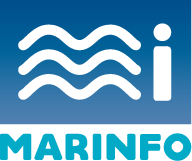|
International Convention for the Unification of Certain Rules Concerning the Immunity of State-Owned Vessels, 1926
http://treaties.fco.gov.uk/docs/pdf/1980/TS0015.pdf
Adopted 10, April 1926, Brussels
Date of entry into force: 8 January 1937
Date of entry into force in Portugal: 27 December 1938
|
It grants immunity from jurisdiction to State ships, including auxiliary ships or other State vessels belonging to the State and used for non-commercial purposes. It can be argued that it applies to unmanned maritime vehicles owned or used by the State, provided that they are not used for commercial purposes. |
|
Convention on the International Maritime Organization
https://treaties.un.org/pages/ViewDetails.aspx?src=TREATY&mtdsg_no=XII-1&chapter=12&lang=en.
Adopted 6, March 1948, Geneva
Date of entry into force: 17 March 1958
Date of entry into force in Portugal: 17 March 1976
|
The International Maritime Organisation is the global standard-setting authority for the safety, security and environmental performance of international shipping. It is the international organisation, which will probably prepare and define guidelines for international sipping performed by unmanned maritime vessels. |
|
Chicago Convention on International Civil Aviation, 1948
https://www.icao.int/publications/Documents/7300_cons.pdf
Adopted 7, December 1944, Chicago
Date of entry into force: 4, April 1947
Date of entry into force in Portugal: 4, April 1947
|
It establishes the rules regarding civil aviation. The Convention has a rule that specifically regulates unmanned aircraft, which can only fly the territory of a State with prior authorisation and in accordance with the conditions established by the State. It also determines that each State undertakes to ensure that the flight of unmanned aircraft in regions open to civil aviation shall be so controlled as to obviate danger.
|
|
International Regulations for Preventing Collision at Sea (COLREGS Convention), 1972
http://www.imo.org/en/Publications/Documents/Supplements%20and%20CDs/English/QB904E_012016.pdf
Adopted 20, October 1972, London
Date of entry into force: 15, July 1977
Date of entry into force in Portugal: 17 October 1978 |
It defines rules aimed at preventing collision at sea, defining, among others, the duty of care and the standards for good seamanship. The definition of vessel - as every description of water craft, including non-displacement craft and seaplanes, used or capable of being used as a means of transpiration on water - may exclude from its scope of application some unmanned maritime vehicles, depending on their features.
|
|
International Convention for the Prevention of Pollution from Ships (MARPOL Convention), 1973/78
http://www.imo.org/en/Publications/Documents/Supplements%20and%20CDs/English/QD520E_092015.pdf
Adopted 2 November 1973, London; 1978 Protocol, 1997 Protocol
Date of entry into force: 2 October 1983
Date of entry into force in Portugal: 22 January 1988 |
The Convention defines ships as a vessel of any type whatsoever operating in the marine environment, and includes hydrofoil boats, air-cushion vehicles, submersibles, floating crafts, and fixed or floating platforms. Submersibles are mentioned in the Convention, which may induce one to argue that it applies to unmanned underwater vehicles, especially, if they are capable of discharging pollutants. The application of the Convention to other unmanned maritime vehicles depends on the specific features of the vehicles themselves and whether or not they fit in the technical standards provided for in the annexes.
|
|
International Convention for the Safety of Life at Sea (SOLAS Convention), 1974
http://www.imo.org/en/about/conventions/listofconventions/pages/international-convention-for-the-safety-of-life-at-sea-(solas),-1974.aspx
Adopted 21 November 1974, London
Date of entry into force: 25 May 1980
Date of entry into force in Portugal: 7 February 1984
|
The Convention sets for the minimum standards regarding construction equipment and operation of ships, aimed at primarily ensuring the safety of life physical integrity of those who are onboard. Accordingly, many of its dispositions are not applicable to unmanned maritime vessels and vehicles.
|
|
United Nations Convention on the Law of the Sea, 1982
http://www.un.org/depts/los/convention_agreements/texts/unclos/unclos_e.pdf
Adopted 10 December 1982, Montego Bay
Date of entry into force: 16 November 1994
Date of entry into force in Portugal: 3 December 1997 |
Referred as the “constitution for the oceans” the United Nations Convention on the Law of the Sea aims to settle, in a spirit of mutual understanding and cooperation, all issues relating to the law of the sea and to promote the equitable and efficient utilization of the marine resources. The Convention establishes the main principles and rules regarding marine scientific research, such as the rights and duties of the States. Marine scientific research activities carried out through unmanned maritime vehicles shall then comply with the Convention, namely Part XIII. The Convention lists the powers and duties of the States over vessels flying its flag. It is argued that these powers and duties shall apply to unmanned maritime vehicles. The Convention also determines the powers of the coastal State regarding the prevention of pollution from vessels. These provisions are to be applicable, in principle, to unmanned maritime vessels. The legal regime of surveillance activities at sea is also regulated within the Convention and depends on the maritime area where the operation is carried out. The utilization of unmanned maritime vehicles in surveillance activities is subject to the rules of the Convention established for each maritime area.
|
|
Draft Convention on the Legal Status of Ocean Data Acquisition System, Aids and Devices (ODAS), of the Intergovernmental Oceanographic Commission of UNESCO, 1993
http://unesdoc.unesco.org/images/0009/000979/097992eb.pdf
Not yet in force
|
It has never been subject to adoption. The draft convention establishes several rules applicable to equipment used for the purpose of collecting data and information from the marine environment. It also regulates the legal regime that applies to different maritime zones.
|
